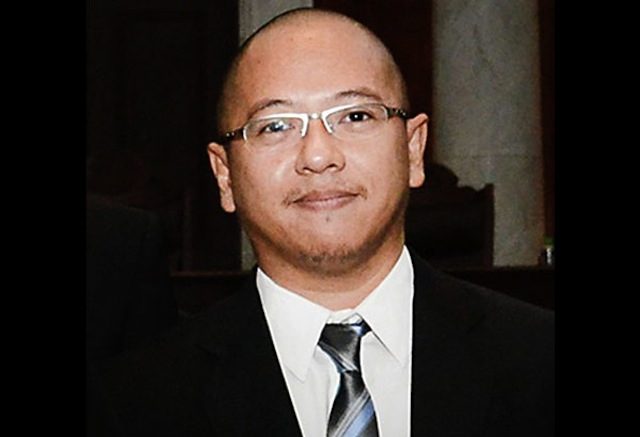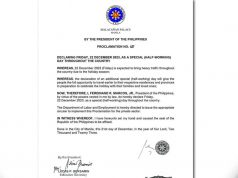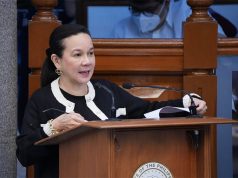MANILA – In the midst of what he called the “death of truth,” former Solicitor General Florin Hilbay has proposed the creation of the Institute for the Integrity of Information, a government agency that will act as an “information police for government officials.”
Hilbay was one of the resource persons on Wednesday at the hearing into “fake news” by the Senate Committee on Public Information and Mass Media.
Here, he said that fake information peddled by public officials posed “special problems”:
1) They are paid with public funds. It is an outrage that they receive taxpayers’ money so they can lie.
2) Their official status provides imprimatur to false information, whether posted in private or official social media accounts.
3) Their public employment provides them access to government facilities, creating a semblance of credibility where otherwise there would be none.
4) Their access to government facilities means that the false information they provide gets widely distributed.
Hilbay acknowledged that there are disciplinary sanctions that can be imposed on dishonest public officials under the Civil Service Law, by the Office of the Ombudsman, or by other heads of government agencies.
However, he said, “these mechanisms are not being triggered.”
And while private citizens and the media have exposed this dishonesty, “they have also been dismissed by government as biased or unfair, political attacks rather than efforts to promote honesty in government.”
Therefore, ordinary Filipinos become “confused by an environment where officials of the executive department, in particular, are able to disseminate false information while demonizing the press, and activist-citizens.”
“The way to counter-balance government disinformation is through the creation of a public institution whose sole task is to identify and publicize government dishonesty,” Hilbay said.
He continued, “I propose, Your Honors, that Congress enact a statute creating the Institute for the Integrity of Information. A sort of Ombudsman for public information, provided by the government, or an information police for government officials.”
The following are the features of his proposed agency:
1. It should be composed of a board whose members are academics, media practitioners, policymakers, scientists, information technology experts of the highest credibility and confidence.
2. They should not be appointed by the President or by any of his alter-egos. This can be done without violating the appointments clause of Article VII, Section 16, of the Constitution.
3. Its function is four-fold:
• to create standards for verifying information provided by government;
• to actually verify information provided by government,
• to publicize its findings, and
• to issue rewards to citizens who are able to spot fake information provided by public officials.
Hilbay said that the agency “should be able to act either motu propio, or upon referral by citizens of a claim of fact laid by government office or officials.”
In the same way the government warns citizens about impending and ongoing disasters through the Philippine Atmospheric Geophysical and Astronomical Services Administration and the Philippine Insitute for Volcanology and Seismology, it should also inform Filipinos about government dishonesty, which, according to Hilbay, “distorts the information environment, polarizes conversation, and manipulates citizens.”
“If citizens think and act on the basis of wrong assertions of fact by public officials, then our marketplace of ideas will receive and produce wrong signals, the consequence of which is the impairment of the value of truth,” he concluded.
Read his full speech here: https://www.facebook.com/permalink.php?story_fbid=1857755920919742&id=1851464654882202.










